- Home
- Patricia McLinn
Body Brace (Caught Dead in Wyoming, Book 10) Page 2
Body Brace (Caught Dead in Wyoming, Book 10) Read online
Page 2
“Jennifer’s wearing me into the ground, Elizabeth. She wants to see everything. Right now. I did have one brilliant idea. Got her on one of those architecture tours on a boat and got to rest my feet and my eyes—”
“And fell sound asleep. I heard.”
“Well, I was tired.”
Trying not to laugh — but not trying too hard — I crooned, “Poor baby.”
“You mean me, right? Because my head is past exploding, but for Jennifer it’s like super-charged fuel.”
Now I did laugh. “Just promise me you’ll do two things. Get her to the Art Institute and some live theater.” I counted Chicago as my home base, having grown up at the fringes of the metro area.
He groaned. “And Mrs. P made me promise to take her to the Chicago Historical Society. I’ll need a vacation to recover from Jennifer’s vacation.”
Mrs. Parens was a retired teacher and principal who had Michael Paycik’s number so thoroughly that a neutral look from the woman standing more than a foot shorter than him made the former NFL player quake in his proverbial boots.
And now I knew she could accomplish that from twelve-hundred miles away.
“Only a few more days before Jennifer leaves Sunday and you can rest up.”
“Yeah.” Before I probed this uncharacteristically down tone, he asked, “What’s new there? Anything cooking?”
By that second question, he meant along the lines of murder investigations several of us — including him and Jennifer — pursued together.
“Pretty quiet, except a historic reenactment this weekend.”
“Oh, the Miners’ Camp Massacre.”
“Miners’ Camp Fight,” I corrected.
“Right, right. Keep forgetting they changed that. Don’t tell Mrs. P.”
I related my encounter with Thurston and Les, including my thoughts on dignity.
“He doesn’t have the spun-glass or the soul kind,” Mike said. It was no great sacrifice to let him win that argument. “But what about Two Rivers Camp? That should be part of the coverage.”
“Yeah, that, too. Did you attend? Why Two Rivers? Doesn’t look like it’s near any rivers.”
“Sure, I went. The rivers are the communities. The— Gotta go. Call coming in from a source. I miss you guys. Really miss you, Elizabeth.”
And he was gone.
The mirage of remembered Chicago moments called up by his accounts faded into the view I most associated with Cottonwood County — fence line, sage brush, distant cattle, against climbing mountains and a sky so big and blue it reminded me of infinity even more forcefully than star-studded night skies did.
* * * *
I stopped at the Sherman Supermarket on the way home from the station.
Not for my regular shopping, but a quick pick-up.
This is one difference between Cottonwood County and Manhattan, where I previously lived … along with the whole matter of significantly fewer people, no tall buildings, lots more cattle, and way bigger skies. In Manhattan, much of the population shopped frequently, even daily, for that night’s dinner. In Cottonwood County, a fair percentage of shoppers are in the supermarket for this month’s staples, because a trip into town takes some doing.
Me? I was there for dessert.
Not for my favorite Pepperidge Farm Double Dark Chocolate Milano cookies, because I had a more than adequate supply at home. Also at work. And a few backup packages at friends’ houses.
But for something to serve for dessert tonight, because Diana was coming over. Actually, she was bringing dinner. The best kind of dinner guest.
I picked up a sea salt caramel pie. They also had sheepherders bread made fresh that day. It couldn’t possibly be as good as my next-door neighbor Iris Undlin made — especially when she brought it over warm from the oven — but it would do in a pinch.
Iris told me it was an old recipe from the border region where France and Spain met, brought to the American West by Basque sheepherders and now made mostly in Dutch ovens — how’s that for international?
On the way from the bakery to the front of the store to check out, I visited the cookie aisle and picked up a couple more packages of cookies. I’m a strong believer in backups of backups when it comes to cookies.
Two checkers were working. I chose the one with the longer line — mind you, in Sherman that’s three people instead of two. The reason for opting for the longer line was the checker.
All branches of the Cottonwood County grapevine passed through Penny Czylinski’s checkout stand at the Sherman Supermarket.
I wasn’t in the market for news or gossip at the moment, but it would have felt like I was using her to only go to Penny when I wanted information.
Besides, she might not share when I was looking for info if I didn’t stay in her good graces.
“Bye now, Loraine. Well, hi there, Elizabeth. Iris and Zeb gone another week, I see. And no steaks with that handsome Mike Paycik off to Chicago.” Her sigh was shorter than most people’s breaths — no sense wasting time on non-words. “Hear you’re covering the Two Rivers Camp and reenactment?”
“I haven’t—”
“Emmaline Parens will be happy to hear that. She was not pleased with Thurston Fine year before last. Standing out there like a stick, getting—”
Mrs. Parens was among the familiar names on the committee I’d read about.
“—every other word wrong and as miserable as a turkey on Thanksgiving. She’s been involved from the start. Least after a group of them made a hash of it the first year. Changed the history all up, as if everybody didn’t know the Indians won that fight. Didn’t even include Indians that first year, which made it a downright lopsided affair. That’s when Emmaline Parens took hold of the reenactment. Then she started the camp—”
“About the reenactment—”
“—a year after that. Practically had to hogtie kids — from the reservation and the others. But after a bit, the word started spreading and there hasn’t been an empty spot for a couple decades now. Why, the greatest battle in Cottonwood County, of—”
A reference to the history being reenacted? Or when Mrs. Parens took hold of the event?
“—course. Bye now, Elizabeth. Hello there, Bella.”
Spit out of Penny’s aisle like a gumball from a gumball machine, I gathered my shopping bag and headed out, wrestling with a difficult concept.
If he knew about Mrs. Parens’ involvement and he knew about my connection to her, Les Haeburn might be sneakier than I’d given him credit for.
Chapter Three
I called Diana from the parking lot. She was all for extending the dinner invitation to Mrs. Parens and Gisella Decker — otherwise known to us as Aunt Gee, because of that familial tie to Mike.
We might have included Aunt Gee regardless, since her knowledge of the county, while not as deep in history as Mrs. P’s, included a mental database from decades as a sheriff’s department dispatcher. Add in that she provided transportation for Mrs. P from the town of O’Hara Hill — second-largest in the county and therefore barely a hamlet — and it was a given.
But when I called Mrs. P, it turned out she and Aunt Gee were in the car, driving to Sherman for a dinner connected to the reenactment and camp. After a quick consultation, they accepted an invitation to stop by for dessert.
After a moment’s internal debate, I went back in the store for a second pie.
Leftovers are always better than coming up short.
As I pulled out of the parking lot, my phone rang.
With no hello, Mike said, “Hey, did you hear Russell Teague’s in a hospital here? I forgot to ask when I called before.”
Russell Teague was an uber rich, uber strange, and uber reclusive sometimes-resident of Cottonwood County.
He’d inherited a ranch from his father that adjoined the ranch of Tom Burrell. One of the other familiar names on the committee involved with the historic reenactment and this kid’s camp. But unlike Tom’s ranch — often referred to as a rea
l nice spread in the local vernacular — the Teague place was considered a ranching disgrace.
Russell left the county as a youngster, tied himself to his rich maternal grandfather’s purse strings, then made a dubious name for himself with expensive quirks and quests, including flying hot air balloons over tall mountains. After inheriting the ranch from a father who’d searched for treasure instead of ranching, Russell carried on that tradition while also compiling a private Old West town.
Among the historic buildings he’d snapped up and moved to his ranch, he seemed to particularly like saloons.
He also was one of two remaining contenders in an ongoing legal action to sort out the future of a stash of historic gold coins.
“What’s wrong with him? And why is he in Chicago?”
“What’s wrong is he’s dying. Word is it’s multiple organ failure. He tried to buy a couple, but—”
“A couple organs?”
“Yup. That’s the rumor. But it appears that with a bunch of them going, even Teague can’t manage it. It’s some syndrome his mother died of, too. The top specialist is here at Northwestern.”
“Wow. There was nothing about it on the rundowns for tonight’s newscasts.”
“Tribune had a story this morning. I’d think AP would have picked it up.”
AP — the Associated Press — definitely would have picked up a story on Russell Teague from the Chicago Tribune. Especially a story about him dying.
I pulled over and started texting. “I can’t believe Audrey would miss that on the wires, unless—”
In unison, we groaned, “Thurston.”
Our esteemed anchor had a habit of turning off the police scanner because the noise penetrated his private office — the best one in the building — interrupting his afternoon naps. Most of the time someone remembered to check, but not always.
Recently, he’d started disabling AP alerts. Because, naturally, he didn’t want to be interrupted by anything like news.
Problem was, he was so inept, he frequently disabled alerts for the entire newsroom.
And with Jennifer away for the week, our best defense against his tech ineptitude was absent.
“Messaged Audrey to find the story,” I told him. “Warned her to check alerts, too. Tell Jennifer she might get a call about how to turn them back on.”
“Will do.”
“So, how’s the job? Tougher than KWMT?”
“Not really. You prepared me well. Besides, I’ve got a lot more help and the equipment’s a dream — once you learn it. Jennifer came in with me one morning and — after she stopped drooling — gave me tips and shortcuts. Despite her wearing me into the ground, we’re having a great time. Wish the rest of you were here, too.”
“What? And miss my big potential assignment this weekend?”
To my surprise, he said, “You should do it.”
“To save Les’ unworthy derriere?”
“No. To give it good coverage. It’s an interesting event. Lots of history. Tom could tell you—”
“Mrs. P and your aunt are coming for dessert and to fill me in enough to decide.”
“What’s for dessert?” Nice to know I still knew how to distract him.
“Sea salt caramel pie.”
“Mmm. I wonder if—”
“I am not sending you pie. There’s plenty of great pie in Chicago. Now, don’t you need to be working?”
“Nah, done for the day. But Jennifer just got here and we’re going to dinner.”
“Tough life.”
“Yeah.” He had a grin in his voice. “Take that assignment, and give it the full E.M. Danniher touch.”
Chapter Four
Truth be told, I might welcome an assignment — not that I’d let Fine and Haeburn know that.
Though the reason was open to debate, as Diana and I proved over dinner by debating it.
Diana had dropped her kids — Jessica and Gary Junior — at separate activities. Then she picked up takeout from Hamburger Heaven for our dinner.
“How’re the kids?” I asked as I made salad from ingredients in my fridge so we’d feel noble before finishing with the sea salt caramel pie when Mrs. P and Aunt Gee joined us.
“Fine.”
I turned at something in her voice. “Diana—?”
“I heard something about a big story and Thurston turning off the wire notifications. Fill me in.”
Okay. So, she didn’t want to talk about whatever that was in her voice.
I relayed Mike’s news about Russell Teague, Thurston’s turning off the alerts, and the update since.
Audrey had messaged that Thurston balked at disrupting the Five to add anything more than the bare statement that one of the county’s wealthiest residents was in serious condition.
And even then, Fine made it sound like Teague was hospitalized in Chicago with a bad sniffle.
That segued to the topic of the assignment, telling her specifics of the exchange with Thurston and Les, then mentioning I might welcome the assignment, thus leading to our disagreement on the possible cause of that welcoming.
“You’re lonely,” Diana said.
“I’m bored,” I disputed.
“And your boredom happens to coincide with Mike leaving town and Tom leaving the playing field?”
“That is an inaccurate description of what was an adult and reasoned discussion that concluded with the decision to put the welfare of his young daughter before anything else.”
“Tell it to the Marines.”
“Diana Stendahl. I’m shocked at your imputation that I am not being truthful.” From that lofty tone, I descended to normal. “Did you know that’s only half of the original phrase? Tell it to the Marines, because the sailors won’t believe it. Can’t imagine the Marines are happy at the implication they’re more gullible. Although—”
I was aware of Diana turning her head toward me, but chose not to assess her reaction. I was busy cutting my hamburger in half.
“—there was a movie with Cary Grant and Ginger Rogers that my mother dug up where Grant’s a World War II newsman caught in an area Nazis are flooding into and forced to read this piece on the radio saying the Nazis can’t be beat. At the end he tells his listeners to tell the Army and Navy they might as well give up and — above all — to tell it to the Marines. Pretty clever, huh? Because the Nazis take it at face value, but American listeners know everything he said was hooey.”
“Hooey?”
“It’s a strange movie. Part romantic comedy, part war movie. It’s called Once Upon a Honeymoon. The war movie part is a reminder that nobody knew how it would turn out, since it was made in the early—”
“Elizabeth.”
“—Forties. Oh. And Ginger Rogers doesn’t sing or dance.”
“Any more?”
“About the movie? I don’t think so. I could look it up and—”
“No.”
“Oh, wait. There is one more thing. John Banner’s in it. Sgt. Schultz from Hogan’s Heroes. He fled his native Austria when it unified with Germany because he was Jewish. Family members were murdered in the Holocaust. And he joined the U.S. Armed Forces during the war.”
“That’s both sad and interesting. But it’s even more indicative you’ve been watching and reading too much about old movies and TV shows. Elizabeth, you’ve got to snap out of it.”
“There’s nothing to snap out of. I’m fine. It’s just been quiet with Mike gone, Jennifer visiting him, Iris and Zeb on vacation, and Mrs. P, Aunt Gee, and Linda—” My friend, Linda Caswell. “—wrapped up in what I now realize is the committee for this reenactment, while you and—”
“You could have volunteered to help.”
“Me? Recreating Cottonwood County’s history from more than a century ago when I need to look up what happened two years back? Mrs. P would laugh me out of the committee. And — yes — Diana, I did notice you cut off my saying anything about what you and Sheriff Russ Conrad have been up to.”
She smiled.
/>
The smile of a woman having a really good time with the right man.
I simultaneously felt happy for her and like I wanted to go see what old movie was on TV.
Maybe I was a little down.
But then Diana’s smile faded.
“What’s wrong?” I asked.
“Jess has been demonstrating her full teenager-hood lately. Nothing major,” she added quickly. “Talking back. Viewing me as a cross between a certifiable dolt and a dictator. That sort of thing.”
“Huh. She seemed fine last time I saw her.”
“That was almost two weeks ago, when your nephew was still here.”
My brother Bill and his wife Anna, along with their four kids, visited on their way to and from Yellowstone Park — along with my parents, who already made the trip earlier in the summer.
Bill and Anna’s oldest, James Robert, but always called J.R., was a year older than Jessica. They had seemed to hit it off…
“You mean Jess and J.R.—?”
“The greatest love story ever, at least in her mind.”
“Are they in touch?”
“All day, every day. I can’t decide if I’m dreading or looking forward to when nature and distance take their toll. But to get back to the assignment, you should take it, Elizabeth. I’ve been scheduled for them for a month. I’ve shot them most years since I started.”
“That sneaky beast.” I told her Haeburn dangled her out as an enticement.
“How about not thinking about whether he wants you to do stories, but about whether you want to do them.”
“Not factor in irritating Thurston versus helping out Les? What an odd concept.”
“Embrace it,” she ordered. “Start from the top. What do you know?”
I told her what Penny said about the reenactment, adding, “This isn’t the same as the Battle of Cottonwood County, is it? Mrs. P didn’t seem convinced when that professor aired his theories last winter.”
“That’s because this has nothing to do with the Battle of Cottonwood County, which — if it happened at all — would have been in 1876. The Miners’ Camp Fight—”

_preview.jpg) Almost a Bride (Wyoming Wildflowers Book 1)
Almost a Bride (Wyoming Wildflowers Book 1)_preview.jpg) Prelude to a Wedding (The Wedding Series Book 1)
Prelude to a Wedding (The Wedding Series Book 1)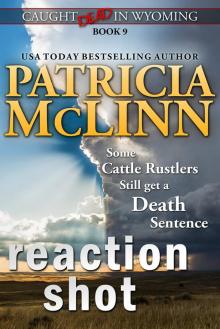 Reaction Shot (Caught Dead in Wyoming, Book 9)
Reaction Shot (Caught Dead in Wyoming, Book 9)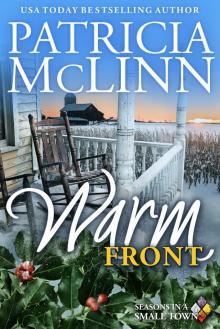 Warm Front
Warm Front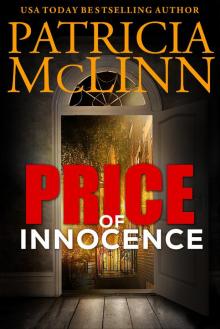 Price of Innocence
Price of Innocence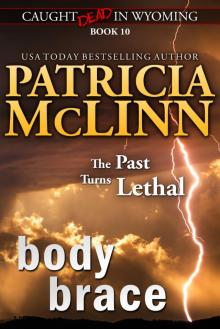 Body Brace (Caught Dead in Wyoming, Book 10)
Body Brace (Caught Dead in Wyoming, Book 10)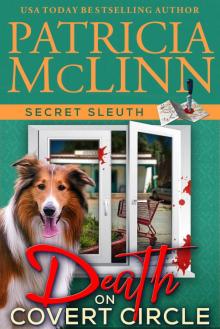 Death on Covert Circle
Death on Covert Circle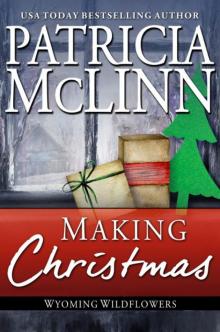 Making Christmas
Making Christmas Death on Torrid Ave.
Death on Torrid Ave.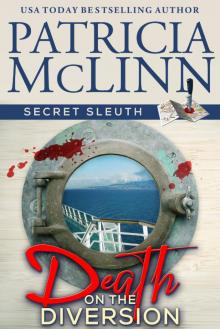 Death on the Diversion
Death on the Diversion The Rancher Meets His Match
The Rancher Meets His Match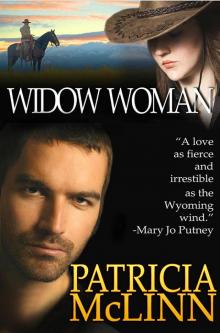 Widow Woman
Widow Woman The Runaway Bride
The Runaway Bride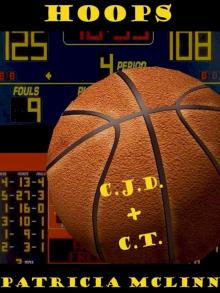 Hoops
Hoops A Stranger in the Family (Book 1, Bardville, Wyoming Trilogy)
A Stranger in the Family (Book 1, Bardville, Wyoming Trilogy)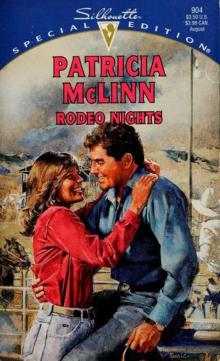 Rodeo Nights
Rodeo Nights Wedding Series Boxed Set (3 Books in 1) (The Wedding Series)
Wedding Series Boxed Set (3 Books in 1) (The Wedding Series)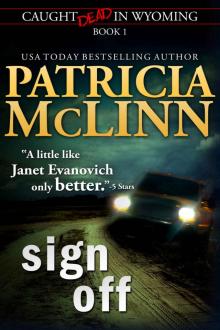 Sign Off (Caught Dead in Wyoming, Book 1)
Sign Off (Caught Dead in Wyoming, Book 1) Prelude to a Wedding
Prelude to a Wedding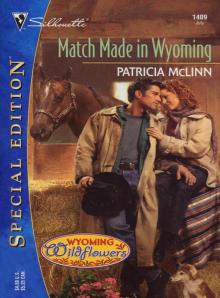 MATCH MADE IN WYOMING
MATCH MADE IN WYOMING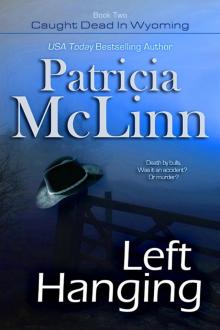 Left Hanging
Left Hanging What Are Friends For?
What Are Friends For?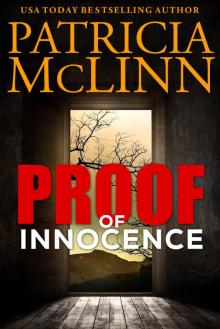 Proof of Innocence
Proof of Innocence Hidden in a Heartbeat (A Place Called Home, Book 3)
Hidden in a Heartbeat (A Place Called Home, Book 3) Baby Blues and Wedding Bells
Baby Blues and Wedding Bells Least Likely Wedding?
Least Likely Wedding? Heart Stealers
Heart Stealers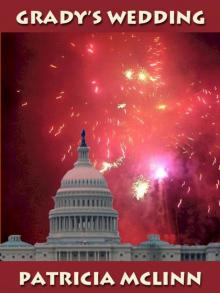 Grady's Wedding
Grady's Wedding Right Brother
Right Brother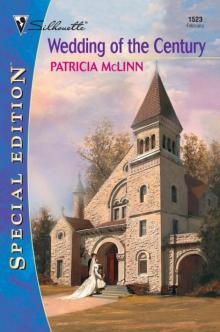 Wedding of the Century
Wedding of the Century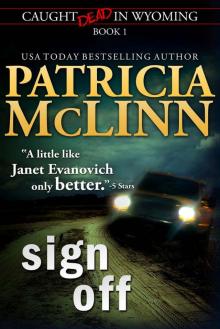 Sign Off
Sign Off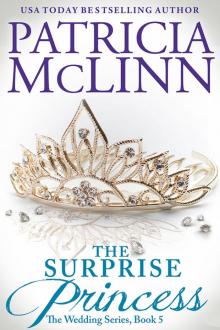 The Surprise Princess
The Surprise Princess Wyoming Wildflowers: The Beginning
Wyoming Wildflowers: The Beginning